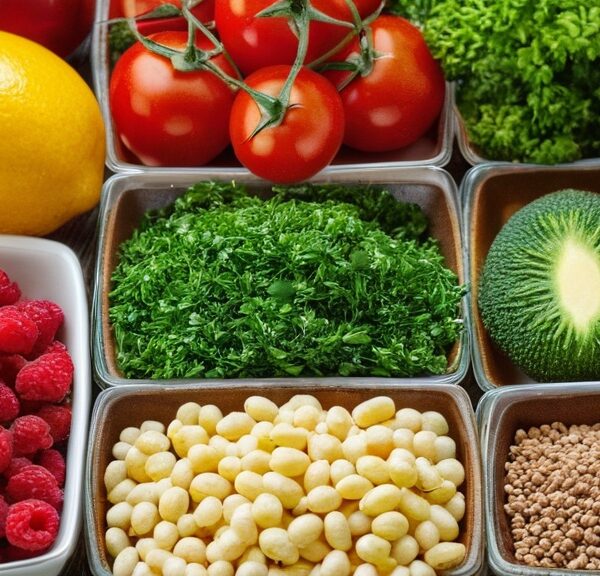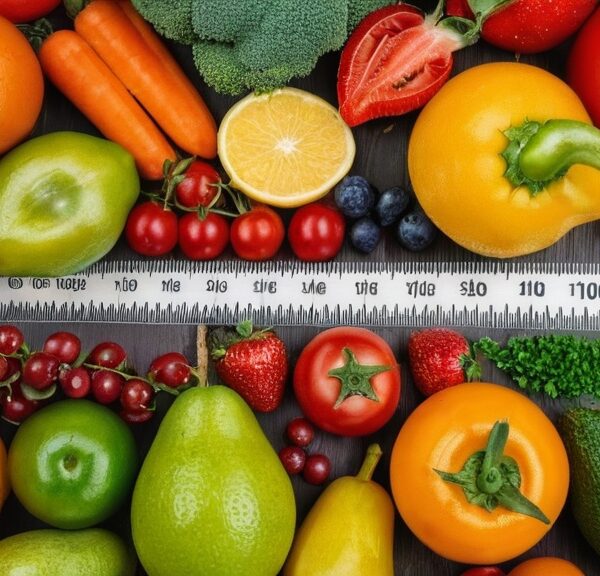Gut health plays a crucial role in overall well-being. A healthy gut supports digestion, nutrient absorption, and immune function. It also influences mood and energy levels, which are vital for athletes.
The gut houses trillions of bacteria that contribute to health. These microorganisms help break down food and produce essential vitamins. When the gut functions well, athletes can perform at their best.
Key Takeaways
- Gut health is crucial for overall well-being and athletic performance
- The gut-brain connection plays a significant role in athletic performance
- Athletes commonly experience gut issues such as bloating and cramping
- Nutritional strategies and probiotics can support gut healing and health
- Prebiotic foods, hydration, and balanced macronutrients are essential for gut healing in athletes
The Gut-Brain Connection and Its Impact on Athletic Performance
The gut-brain connection significantly affects athletic performance. The gut communicates with the brain through the vagus nerve, influencing mood and motivation. A healthy gut can enhance focus and reduce anxiety during competitions.
Athletes often experience stress, which can disrupt gut health. This disruption may lead to decreased performance and increased fatigue. Understanding this connection helps athletes prioritize gut health for optimal results.
Common Gut Issues Among Athletes

Athletes frequently face gut issues that can hinder performance. Conditions like bloating, gas, and diarrhea are common complaints. These problems often arise from intense training and dietary choices.
Inadequate recovery and stress can exacerbate gut issues. Athletes may overlook these symptoms, thinking they are normal. However, addressing gut health is essential for sustained athletic success.
Nutritional Strategies to Heal and Support Gut Health
Nutrition plays a vital role in maintaining gut health. A balanced diet rich in whole foods supports a diverse microbiome. Incorporating fruits, vegetables, whole grains, and lean proteins can promote healing.
Athletes should focus on anti-inflammatory foods to reduce gut irritation. Foods like fatty fish, nuts, and seeds provide essential nutrients. These choices can help restore balance in the gut and enhance performance.
Incorporating Probiotics and Fermented Foods into an Athlete’s Diet
Probiotics are beneficial bacteria that support gut health. Athletes can incorporate probiotic-rich foods like yogurt, kefir, and sauerkraut into their diets. These foods help restore the balance of gut bacteria.
Fermented foods also offer additional health benefits. They improve digestion and enhance nutrient absorption. Including these foods can lead to better overall health and improved athletic performance.
The Role of Prebiotic Foods in Gut Healing

Prebiotic foods serve as fuel for beneficial gut bacteria. Foods like garlic, onions, and bananas promote the growth of these microorganisms. Athletes should include prebiotics in their diets to support gut health.
These foods help maintain a balanced microbiome, which is crucial for recovery. A healthy gut can improve energy levels and reduce inflammation. Prioritizing prebiotic intake can enhance athletic performance.
Avoiding Gut Irritants and Inflammatory Foods
Certain foods can irritate the gut and hinder performance. Processed foods, high sugar items, and excessive caffeine can cause inflammation. Athletes should limit these irritants to support gut health.
Identifying personal food sensitivities is also essential. Common culprits include gluten and dairy for some individuals. By avoiding these irritants, athletes can improve their gut health and overall performance.
Hydration and Its Impact on Gut Health for Athletes
Hydration plays a critical role in maintaining gut health. Water helps with digestion and nutrient absorption. Athletes should prioritize hydration to support their overall well-being.
Dehydration can lead to constipation and other digestive issues. Maintaining proper fluid intake ensures the gut functions optimally. This focus on hydration can enhance athletic performance significantly.
The Importance of Balancing Macronutrients for Gut Healing
Balancing macronutrients is essential for gut healing. Athletes need carbohydrates, proteins, and fats in appropriate ratios. Each macronutrient plays a role in supporting gut health.
Carbohydrates provide energy for workouts while promoting healthy bacteria growth. Proteins aid in tissue repair, while healthy fats reduce inflammation. A well-rounded diet supports both gut health and athletic performance.
Gut-Healing Supplements for Enhanced Athletic Performance
Supplements can support gut health for athletes seeking enhanced performance. Probiotic supplements help restore balance in the microbiome. They can be particularly beneficial during intense training periods.
Other supplements like L-glutamine may aid in gut healing as well. This amino acid supports the intestinal lining and reduces inflammation. Athletes should consult with a healthcare professional before starting any supplement regimen.
Implementing a Gut-Healing Protocol for Athletes
Creating a gut-healing protocol is essential for athletes aiming for peak performance. Start by assessing dietary habits and identifying areas for improvement. Focus on incorporating whole foods, probiotics, and prebiotics into daily meals.
Regularly monitor symptoms related to gut health. Keeping a food diary can help identify triggers or irritants. Adjusting the diet based on these observations will support long-term gut health and athletic success.
In conclusion, prioritizing gut health is vital for athletes seeking optimal performance. Understanding the connection between the gut and overall well-being can lead to better training outcomes. By implementing nutritional strategies, avoiding irritants, and focusing on hydration, athletes can enhance their performance through improved gut health.
FAQs
What is the gut microbiome?
The gut microbiome refers to the trillions of microorganisms, including bacteria, fungi, and viruses, that live in the digestive tract. These microorganisms play a crucial role in digestion, nutrient absorption, and immune function.
How does the gut microbiome affect athletic performance?
The gut microbiome can influence athletic performance by impacting nutrient absorption, energy production, and inflammation levels. A healthy gut microbiome can also support immune function, which is important for overall health and recovery.
What are some nutrition strategies for healing the gut in athletes?
Nutrition strategies for healing the gut in athletes may include consuming a diverse range of fruits, vegetables, whole grains, and lean proteins. Probiotic-rich foods, such as yogurt and kefir, can also support gut health. Additionally, avoiding processed foods and excessive sugar intake can help maintain a healthy gut microbiome.
Are there specific supplements that can support gut health in athletes?
Probiotics and prebiotics are commonly used supplements to support gut health in athletes. Probiotics contain beneficial bacteria that can help restore balance to the gut microbiome, while prebiotics provide the necessary nutrients for these beneficial bacteria to thrive.
How can athletes identify if they have gut health issues?
Athletes may experience symptoms such as bloating, gas, diarrhea, constipation, or food intolerances if they have gut health issues. Additionally, decreased energy levels, frequent illness, and poor recovery from training may also indicate potential gut health issues. Consulting with a healthcare professional can help athletes identify and address these issues.



